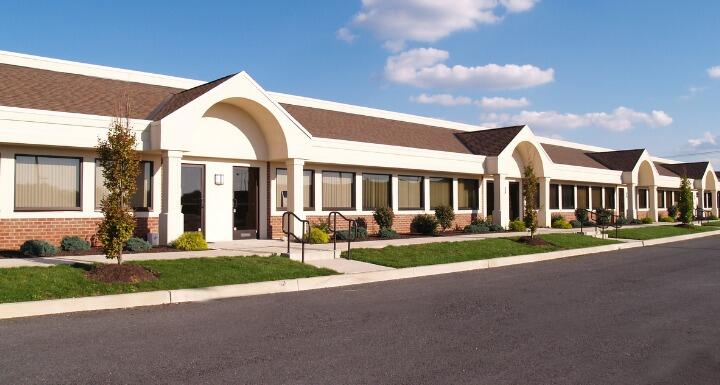
What are commercial owners associations, and are they really that different from residential owners associations?
Commercial owners associations are nonprofit corporations that govern planned communities, condominiums, or a combination of the two, in which the lots and/or units are used for non-residential purposes.
Commercial owners associations are governed by the same statutes as residential owners associations: Chapter 55A of the North Carolina General Statutes (the Nonprofit Corporation Act), Chapter 47C of the North Carolina General Statutes (the Condominium Act), Chapter 47A of the North Carolina General Statutes (the Unit Ownership Act) and Chapter 47F of the North Carolina General Statutes (the Planned Community Act).
While some of the obligations and responsibilities of commercial associations are the same as residential associations (the collecting assessments from the members, maintaining the common elements, and enforcing the rules and regulations), there are some issues that are more important, or are unique, to commercial associations.
Parking
Typically, parking is not an issue in residential communities. Owners of lots park on their lots and owners of condominium units park in what are often limited common elements parking spaces dedicated to particular units.
But for a commercial community, parking is very important to the owners. Adequate and convenient parking for the employees, and most importantly, the customers, is vital to the success of the business. Some commercial communities have ample parking in the common elements, but business owners may want some designated parking close to their lot or unit; and, in a community with limited parking, it may be necessary for each lot or unit to be allocated some limited common elements parking to ensure easy access for customers.
This issue should be addressed in the declaration when the commercial community is formed. If it is not, an amendment to the declaration may be necessary, which often will require the consent of a certain percentage of the owners.
Signage
Signs are usually prohibited in residential communities or subject to rules that establish duration, size, and location on political signs and "for sale" and "for rent" signs.
In a commercial community, signs are necessary to identify and advertise the owners' businesses. While some regulations as to the size, number, and type of signs are desirable, signs should be allowed in commercial communities. In addition to signs on a lot or unit of the business, commercial communities often maintain monument signs or electronic signs in the common elements that identify the various businesses. The governing documents should address how these signs are managed by the owners association so that each business is given a fair opportunity to advertise its business.
Use Restrictions
While governing declarations establish and restrict the uses of lots and units within particular communities, those uses will differ between residential and commercial development.
As implied by the designation, declarations creating residential communities promote typical neighborhood/non-commercial activities and restrict or prohibit the uses and actions that may be a nuisance to the other owners within the community.
Use restrictions in commercial communities are also intended to prevent one business owner from becoming a nuisance to the other owners within the community. Such restrictions also frequently establish specific uses permitted within that community. For example, some commercial communities are restricted to only medical offices, business offices, or, perhaps, a combination of restaurant and retail uses.
It is important that any such use restrictions on the lots or units be established in the declaration and additional governing documents. As North Carolina law favors the unrestricted and free use of property, subsequent rules or regulations intended to restrict or prohibit certain uses not specified in the declaration and governing documents will most likely be unenforceable.
Ordinances and Regulations
In addition to the governing North Carolina statutes (mentioned above), local, state, and federal ordinances and regulations (think about local zoning ordinances) must be observed. In residential communities, all of the lots or units are being used for the same general purposes, so the same ordinances and regulations would apply to all of the owners and their properties.
However, in a commercial community, you may have restaurants, business offices, medical offices, retail stores, and other uses all of which may be subject to different ordinances and regulations. Most of the burden for complying with those ordinances and regulations will fall on the individual business owners, but the owners association should be aware of the ordinances and regulations applicable to the community to make certain that owners do not commit violations that could harm, or result in a violation enforced against the entire community and association.
Mixed-Use Communities
Some planned communities and condominiums contain both commercial and residential lots and units. The owners association for a mixed-use community will need to deal with all of the issues important to a commercial community, some of which are described above, and the issues important to a residential community. One way to ensure that all of the owners' needs and concerns are considered is to establish in the governing documents that the association board will be comprised of owners of both residential lots or units and commercial lots or units. The concept of selecting board members from different types of lots or units may also be applied in a solely commercial community to make sure the board is truly representative of the entire community.
All owners associations must perform many of the same tasks, enforce the same rules, fulfill the same obligations, and comply with the same statutes, but the needs and issues in commercial owners associations are unique. It is important for the board of directors of these associations to understand the complexities of a commercial community so that they can adequately meet the needs of their members.
--
© 2025 Ward and Smith, P.A. For further information regarding the issues described above, please contact .
This article is not intended to give, and should not be relied upon for, legal advice in any particular circumstance or fact situation. No action should be taken in reliance upon the information contained in this article without obtaining the advice of an attorney.
We are your established legal network with offices in Asheville, Greenville, New Bern, Raleigh, and Wilmington, NC.








